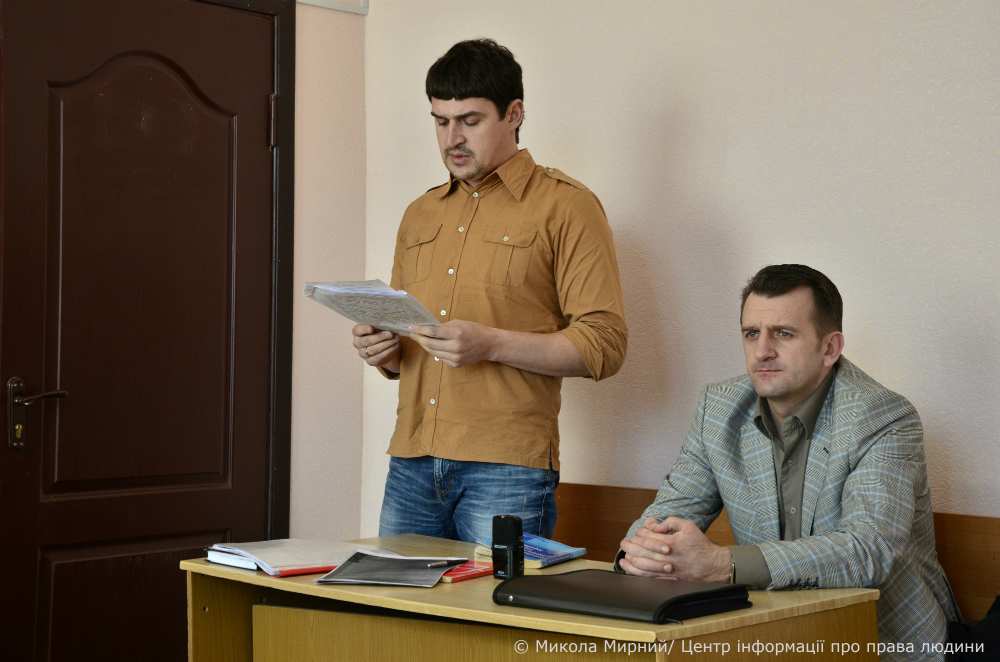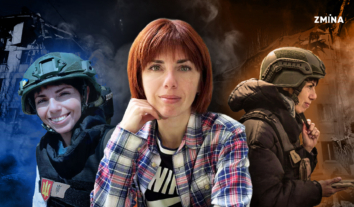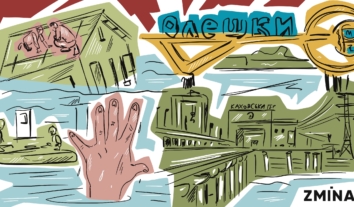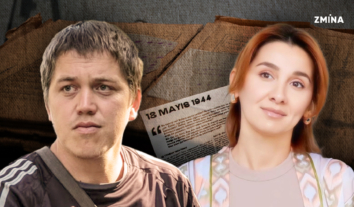Price of Independence for a Ukrainian Judge


Normal
0
false
false
false
RU
X-NONE
X-NONE
/* Style Definitions */
table.MsoNormalTable
{mso-style-name:”Обычная таблица”;
mso-tstyle-rowband-size:0;
mso-tstyle-colband-size:0;
mso-style-noshow:yes;
mso-style-priority:99;
mso-style-qformat:yes;
mso-style-parent:””;
mso-padding-alt:0cm 5.4pt 0cm 5.4pt;
mso-para-margin-top:0cm;
mso-para-margin-right:0cm;
mso-para-margin-bottom:10.0pt;
mso-para-margin-left:0cm;
line-height:115%;
mso-pagination:widow-orphan;
font-size:11.0pt;
font-family:”Calibri”,”sans-serif”;
mso-ascii-font-family:Calibri;
mso-ascii-theme-font:minor-latin;
mso-fareast-font-family:”Times New Roman”;
mso-fareast-theme-font:minor-fareast;
mso-hansi-font-family:Calibri;
mso-hansi-theme-font:minor-latin;}
Introduction
The case of Serhiy Bondarenko, a judge in the Court of Appeals in Cherkasy Oblast, resembles a detective story, full of details and documents and conspiracy. He is perhaps the first person in his position in Ukraine to come forward with information about impropriety and harassment from the Head of a Court. Up until now, he has mostly faced his situation alone, outside of any support from his colleagues in the “judicial corporation.” The kind of pressure from his superiors is a systematic and hidden problem in the Ukrainian judiciary. After the criminal investigation into the misconduct was closed by local prosecutors, it was demanded to be reopened by the Oleksandrivsky District Court of Kirovohrad Oblast. The renewed investigation will examine the actions of Volodimir Babenko, the head of his court, and Olena Streletska, its Chief of Staff. Let’s look at an overview of the case:
Challenging Corporations
The conflict between Bondarenko and the Head of the Court, Volodimir Babenko, was sparked by a case between the Azot Company and Oksana Yashan, a professor at the Cherkasy State Technological University. The company tried to evict her from a service space in November 2013. Babenko became resentful about the decision by a panel of judges to rule in favor of the professor and began to threaten Bodarenko for his role in it. A recording of his tirade, where he declared his anger for going around him to rule against a major corporation, was released by the NGO “AutoMaidan.” Babenko has stated that, while the tape was of his voice, it was heavily edited to make him look bad. The Cherkasy Prosecutors Office rejected the recording as evidence of wrongdoing and condemned the act of making it.
Bondarenko believes that Babenko’s anger with the ruling is the result of him taking bribes from Azot and the oligarch who is in charge of it, Dmytro Firtash.
Bondarenko’s situation became more unbearable after his involvement with the case of the Kanivske Livoberezhne Hunting Company, which accused the State of improperly seizing its assets in relation to an embezzlement investigation. The other judges in the collegiums for the case were pressured into ruling in favor of the company by the Head of the Court, but his dissenting opinion was used in a higher Court of Appeals which reversed the decision in favor of the State.
Harassment Escalates
In 2013, Chief of Staff Olena Streletska informed Bondarenko that his assistant, Tetyana Lapina, had been transferred to another position, so he no longer had an assistant. He remained without one for ten months. His appeals to be appointed an assistant were denied “due to operational needs.” After finally obtaining an assistant, she was persistently blocked from doing her job properly and denied necessary tools until she had to quit. Streletska claims that he is simply a “problematic judge” who nobody wants to work with.
When Bondarenko was finally convinced that he was being targeted, he began to document everything that related to his professional duties and any illegal actions which he noticed. After the court’s leadership noticed that he was doing this, they forbade him from proceeding with registering his complaints without it going through the head of the court first.
Harassment Turns to Arson and More
On September 11th of last year, an unknown assailant set fire to Bondarenko’s car. The fire was extinguished by a nearby security guard. The Arson occurred three days after the acting head of the court, Alla Zakharova, learned that Serhiy intended to report unlawful actions against himself to the High Qualification Commission of Judges.
Two weeks after the arson, Bondarenko noticed two unidentified men near his apartment early in the morning. The men’s behavior was very suspicious, as was the police report going missing after they were questioned about it. Despite Bondarenko’s demands, there was no investigation into the link between the two men and the arson. Meanwhile, his authority as a judge continued to be undermined. The Court refused to reassign cases that he recused himself from, forcing him to choose between either letting cases drop or giving the appearance of impropriety. This further contributed to his decision to bring formal complaints against the Court.
Bondarenko’s Form Complaints
The hearings by the Court in relation to Bondarenko often resembled a master class on how to “tame” or “oust” a stubborn judge. In many such courts, there is an unwritten code of judicial cooperation and deference to the head of the court. Failure to comply leads to a judge being made into a pariah, while those who follow it become criminals.
After Serhiy Bondarenko’s case against the Court became public, and ahead of the April 17th election, the Head of the Court held a briefing in which he denied all accusations. Babenko accused Bondarenko’s supporters of being “Golden Youth” who are attempting to overthrow competitors to their power. He said that Bondarenko was making up lies and slander in order to discredit the court and position himself as its new leader with rising politicians. He also questioned the judge’s mental health and said that he was whiny and unlikable. Bondarenko rejected these accusations, saying that he was only reporting harassment.
Civil Society takes up the Case
Bondarenko’s story inspired a lawyer from the AutoMaidan NGO, Roman Maselko, to further look into the issue of judicial whistleblowers. After making a post about the case on Facebook, three more judges stepped forward with their own stories of court corruption, especially in regards to the prosecution of Euromaidan activists. AutoMaidan then announced its full support to any judges who would step forward and become whistleblowers. Meanwhile, Bondarenko stressed that many within the judicial system were good, fair, judges and requested that the state guarantee the safety of those who wished to step forward about inappropriate behavior that they have witnessed.
Other organizations, including the Reanimation Package of Reforms and the Center for Political and Legal Reforms have also announced their support for judicial whistleblowers.







